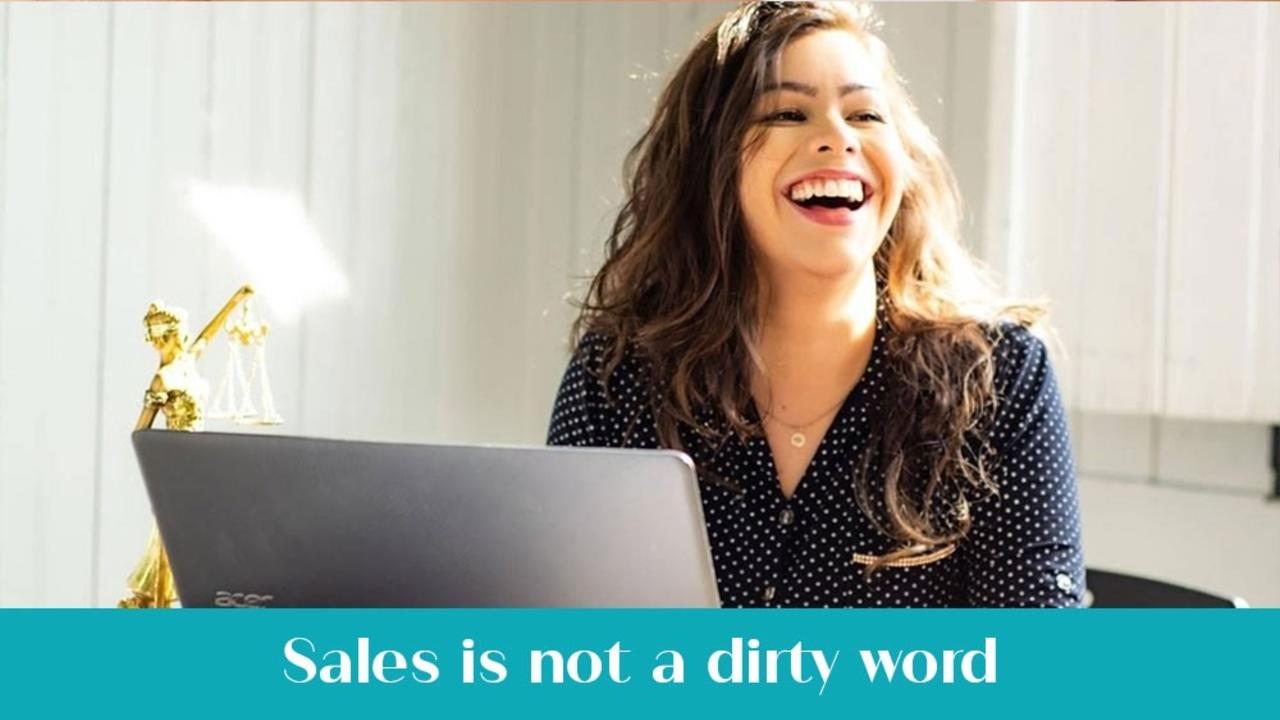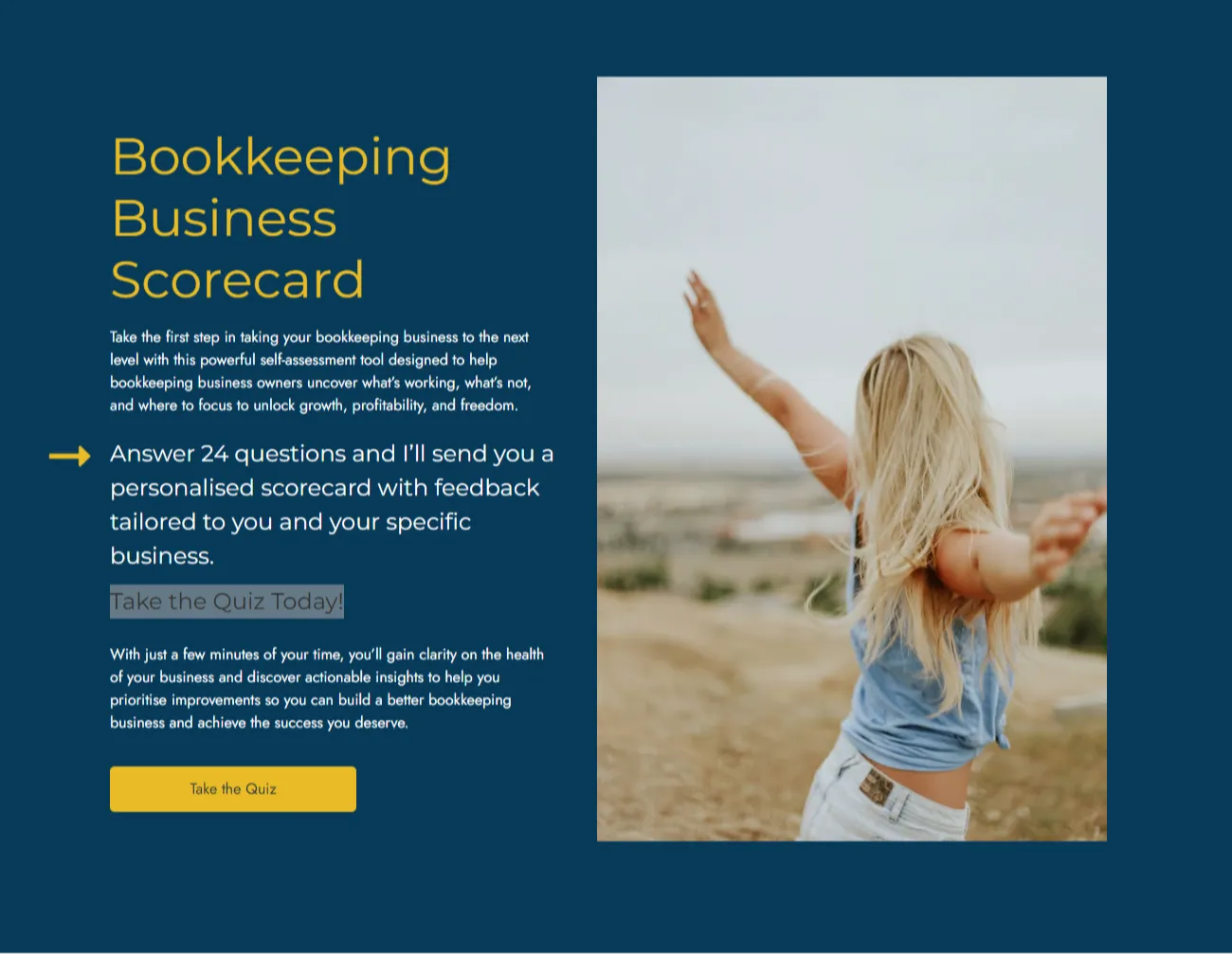Sales is not a dirty word
Aug 07, 2020
Lordy, Lordy, Lordy, all the times I talk about sales only to be met with a shudder and a look of horror. I’m not sure how and when the idea of sales people as disingenuous and pushy became so firmly entrenched, but if you find yourself feeling that you need to coerce or push a potential client into working with you then, either, you are doing sales very wrong, or they are not your target market.
I spent a good part of my earlier career in sales roles with limited training but with some success nonetheless. So, if sales is not that, then what is it?
The definition of sales is pretty simple: the act of exchanging a commodity or service for money. My take on sales, especially in the business-to-business space, is that it is all about building relationships - and the quicker you can do that the better - and about providing good-fit solutions to the problems and issues of others.
To put a different perspective on this, let’s think about this from the other side of a sale, from the buyer’s perspective.
See the thing is, we all want to be SOLD TO because we all like to BUY. Sales is like double entry bookkeeping in that there are always two sides to the transaction.
When we go looking for something we need, we’re pretty happy to find someone who can help us. At this point there’s certainly an expectation that we will part with our money and we’re generally OK about that so long as the solution sold to us meets or exceeds our expectations. We’re looking for the right fit and the best value.
With that in mind you need to determine whether you’re offering good value and if you’re product or service is a good fit. And you can’t do that well without understanding the issue from the other’s perspective.
This is where a genuine conversation needs to happen, one where you, first and foremost, listen, then seek to truly understand the environment your potential client is operating within and the challenges they’re looking to overcome.
What it is NOT is you telling them all about what you do, and how great you are, and how much they need what you’re offering, with them not able to get a word in edgeways. Your potential client needs to feel listened to and understood, and to feel that you have their best interests at heart over your own, and only then will they start to trust you.
Be curious. Listen. Be genuine, authentic, empathetic and sympathetic to their needs. If you genuinely feel that you have a good-fit solution for them then that’s great. Here’s to a long and happy working relationship.
Conversely if you are not what they need then it’s in both of your best interests for you to advise as such and walk away. Better still, refer them to someone else who you know would be a better fit. Generate goodwill with your honesty.
An example
I have a valued client who tells me often how much he values me, and he also often repeats the story of when we first met as it was so impactful for him. I’ve been a QuickBooks (now Reckon) Accredited Consultant for years now, and it was in this capacity that we first spoke. He was looking to move from a custom designed but fast-becoming aged and clunky DOS-based accounting system to something more modern and up-to-date.
He spoke with an MYOB Consultant (this was in the days before I became an MYOB Consultant myself) who brusquely informed him that there would be a cost to her visit to come and show him the software. It was pretty cut and dried as he recounts it and he felt no rapport with her.
He then spoke to me and I took the time to ask him lots of questions about his business and what features he needed, then said that I thought QuickBooks would be a good option for him and suggested I come and demo the product for him so he could see how it worked and ask questions.
He then asked how much it would be for me to do that (‘cos obviously that was how it worked based on the previous conversation). He says he still vividly remembers my surprised pause on the other end of the phone before I informed him that no, I wasn’t going to be charging him for what I considered to be a sales call.
That level of service has stuck with him for years and, as I’ve said, I’ve heard him repeat that story several times. He says that he knows that I always have his best interests at heart and that started with day one. You can’t buy or fake that level of trustworthiness. You just have to demonstrate it.
The other point to mention here is that my time upfront has paid off in spades. Not only did I get that initial sale but I got the many hours of training and implementation of the software, the subsequent upgrades in years to come, consistent income as I have now visited them once a month for years since then, and referrals to other businesses for similar services, again providing years of income.
But above all that, what I value even more than that, is the much-valued relationship we established over that time, to the point that all these years later we consider each other trusted friends.
And that, in my opinion and experience, is how you do sales.
If you want additional resource, here is another blog on How to approach sales conversations
Stephanie 
PS: Interested in working with me as your bookkeeping business coach? Send me an email or Message me to start the conversation.
Take the first step in taking your bookkeeping business to the next level!
With just a few minutes of your time, you’ll gain clarity on the health of your business and discover actionable insights to help you prioritise improvements so you can build a better bookkeeping business and achieve the success you deserve.



